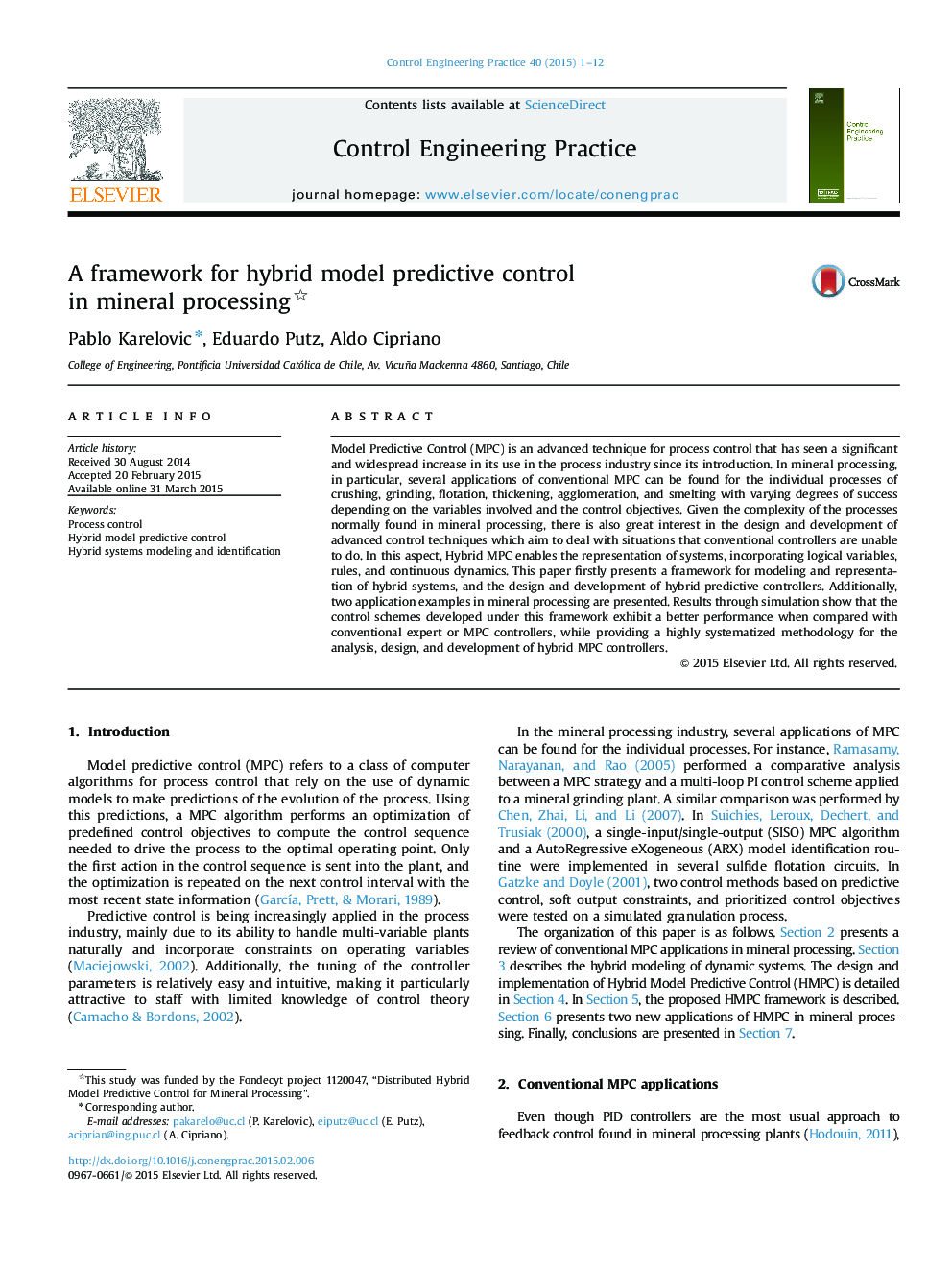| Article ID | Journal | Published Year | Pages | File Type |
|---|---|---|---|---|
| 699488 | Control Engineering Practice | 2015 | 12 Pages |
•A framework for hybrid model predictive control, which includes a hybrid state estimator, was developed.•A crushing plant and a rougher flotation line were modeled.•Hybrid controllers were implemented in both processes using the framework.•Hybrid controllers outperform conventional controllers in simulation tests.
Model Predictive Control (MPC) is an advanced technique for process control that has seen a significant and widespread increase in its use in the process industry since its introduction. In mineral processing, in particular, several applications of conventional MPC can be found for the individual processes of crushing, grinding, flotation, thickening, agglomeration, and smelting with varying degrees of success depending on the variables involved and the control objectives. Given the complexity of the processes normally found in mineral processing, there is also great interest in the design and development of advanced control techniques which aim to deal with situations that conventional controllers are unable to do. In this aspect, Hybrid MPC enables the representation of systems, incorporating logical variables, rules, and continuous dynamics. This paper firstly presents a framework for modeling and representation of hybrid systems, and the design and development of hybrid predictive controllers. Additionally, two application examples in mineral processing are presented. Results through simulation show that the control schemes developed under this framework exhibit a better performance when compared with conventional expert or MPC controllers, while providing a highly systematized methodology for the analysis, design, and development of hybrid MPC controllers.
